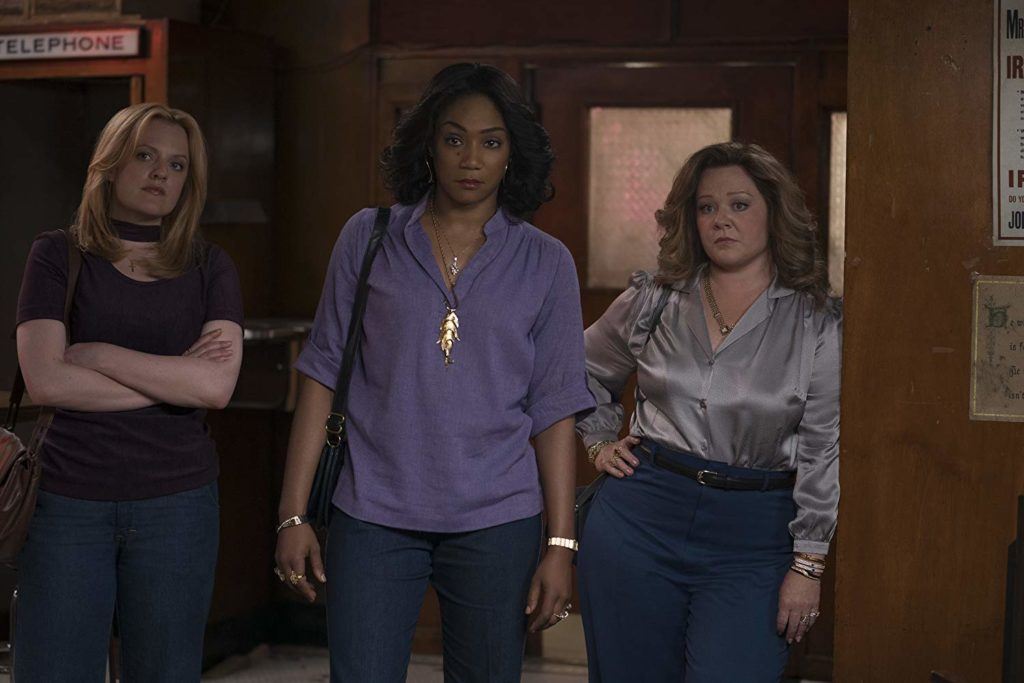The Kitchen

From left, Elisabeth Moss, Tiffany Haddish, and Melissa McCarthy star in THE KITCHEN. (Photo by Alison Cohen Rosa, Warner Bros. Entertainment)
New Yorkers of a certain age might best appreciate The Kitchen, which offers a gritty and evocative glimpse into Disco-era Manhattan during the late 1970s.
Alas, the backdrop is the most memorable element of this mildly compelling but morally ambiguous crime drama, adapted from a comic-book miniseries, which provides a gender-reversed take on revenge and betrayal among thugs and mobsters.
The story is set in the titular Hell’s Kitchen neighborhood, which at the time was overrun by Irish crime syndicates whose members often were paid off to provide unofficial security to wary business owners.
When that racket lands three such mobsters in prison, though, their wives are left to fend for themselves. Kathy (Melissa McCarthy), Ruby (Tiffany Haddish), and Claire (Elisabeth Moss) hatch a bold plan to take over for their incarcerated spouses, aligning themselves with a Mafia boss (Bill Camp) and a hitman (Domhnall Gleeson) who can help them elude a detective (Common) on their trail.
As they develop street smarts and learn to handle weapons, the women find their skills are complementary, with Kathy as the brains, Ruby as the slick talker and Claire as the quiet enforcer. Even when things get tight, the trio remains resilient. “I’m not gonna stop,” Kathy says defiantly. “This is who I am.”
McCarthy and Haddish both effectively change gears with committed performances, while Moss is in fine understated form. However, the three actresses struggle to generate sympathy for their unscrupulous rogues engaged in a power struggle, with the film content to cheer their criminal acts as a misguided method of empowerment.
It’s a shame the screenplay by rookie director Andrea Berloff (who co-wrote the script for Straight Outta Compton) doesn’t give the periphery characters — a.k.a. the men — much depth or complexity in a film populated almost entirely by schemers and scoundrels. A maze of final-act plot twists never builds much intrigue or rooting interest in the outcome.
So while The Kitchen conveys a vivid sense of time and place and tosses in some violent outbursts for good measure, it tends to oversimplify the evolving gender politics and cultural implications of the era. Perhaps the film can take the heat, if only it had brought some.
Rated R, 102 minutes.